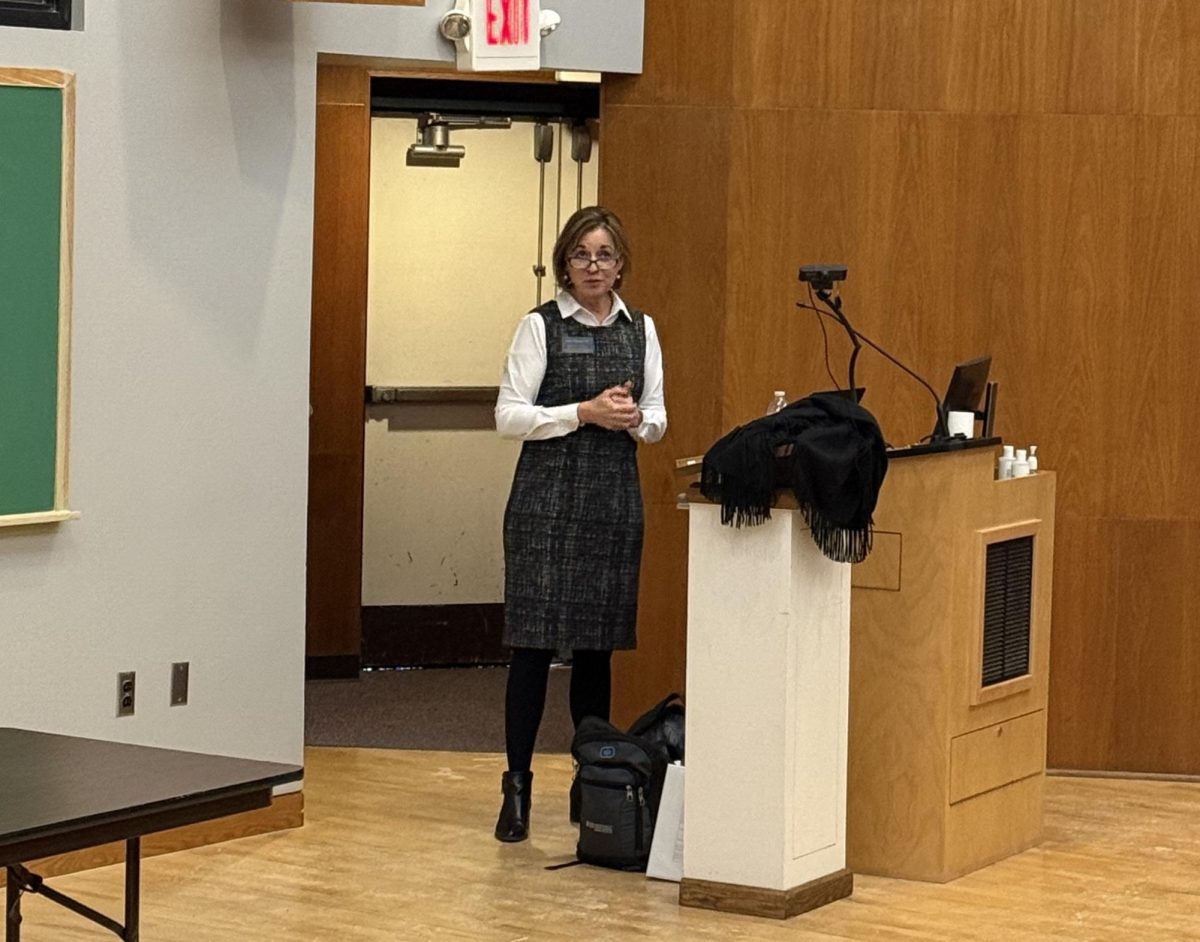By KATIE McHUGH
Staff Writer
[email protected]
Faculty rejected proposed changes to Allegheny’s academic calendar in a narrow vote of 51 to 43 at last Friday’s faculty meeting.
The new academic calendar proposed academic planning days, including two advising days and a theme day in the fall semester and a senior celebration day in the spring, said
Curriculum Committee member Nathan Ehrman, ’12. No classes would be held on those days to give students a chance to declare their majors together, learn more about departments or attend study-aboard and job information sessions held by ACCEL.
Saturday finals would have been eliminated and breaks would align with holidays.
“Fall Break would coincide with Columbus Day, which would be nice for a lot of families, because if you had younger brothers or sisters, they’d be off,” said Ehrman.
Many faculty members felt that the academic planning days might impose an additional burden to their academic workload.
What most concerned faculty, however, were the proposed changes made to the finals schedule. Originally, the Curriculum Committee eliminated Saturday finals.
“By moving the finals schedule, it pushed back the last date of finals until Thursday, which means Latin honors and the walking list would be impossible to finish in time for Saturday commencement,” Ehrman said. “That was a huge issue to faculty.”
The Curriculum Committee revised its proposed finals schedule, placing Saturday finals back on the docket to preserve Senior Week and allow faculty time to deliberate on Latin honors.
However, Erhman cited a lack of support from the International Office and ACCEL as the reason why the proposed calendar ultimately failed.
The new calendar also involved possible EL seminars in December and January, which caused faculty and academic offices to question the expediency of extending the term later into May.
“One of the biggest initial changes we wanted to work in was the possibility of having a winter EL term,” said Ehrman. “This would create the chance for professors to take students to the Southern Hemisphere, because our current EL terms are in their wet season, so you can’t go.”
Many dissenting voters worried a later graduation date in May would hamper students who planned to take an EL seminar and hold summer internships.
Professor Shannan Mattiace, department head of International Studies, felt the proposed calendar pushed the school year too far into May without giving enough time for students to experience a full January term.
She also believed a later conclusion to the spring semester would interfere with summer projects of both students and faculty.
“I felt that going longer in May is not necessarily a good thing for students who want to take advantage of these opportunities,” she said. “It’s not a good thing for faculty who do research away from Meadville in the summer. Going further into the summer has some significant downsides, and I wasn’t convinced that the positive things about the change would outweigh going further into May.”
Many faculty members also expressed concerns about increased expenses of later EL trips. Under the new calendar, some would be pushed into the busy tourist season, potentially raising costs. Weather was an issue as well. Monsoon season begins in India in June.
Meadville weather also presented difficulties for the launch of a January EL term.
“You have to have everyone meet on campus and then go to the airport, and that’s a logistical nightmare,” said Ehrman.
While dangerous weather raised concerns about traveling in the Northern Hemisphere, a longer winter term would permit faculty to take students to South America during the dry season.
Professor Scott Wissinger voted for the new calendar, citing the positive aspects of the Academic Planning Days and a chance to travel to countries in the Southern Hemisphere.
“I supported the proposed changes because they addressed several of the initiatives that emerged from the Strategic Plan,” he said in an e-mail.
Since January is a dry season for many places, new EL seminars to the tropics and south temperate locations could become a possibility.
While the current proposal may have seen its last days in the public light, both the faculty and members of the Curriculum Committee remain optimistic about future plans for changes to the academic calendar.
“I appreciate the concerns raised by faculty who found the costs (e.g., conflicts between later summer ELs and 10-wk summer internships) of the proposed changes to outweigh the benefits,” said Wissinger in an e-mail.
“I hope we can find a compromise calendar that addresses those concerns and retains as many of the benefits (e.g., eliminating weekend finals, all-college programming days) as possible.”
Despite their criticism of the proposed academic calendar’s perceived shortcomings, members of the faculty applauded the efforts of the Curriculum Committee.
“We as a faculty honor the work that they did. It takes a lot of work to propose the new calendar. I didn’t vote for it, but that doesn’t mean I don’t honor their work. I really do honor their work,” said Mattiace.
While the proposed academic calendar undergoes further changes for a future reintroduction, the Curriculum Committee will continue to approve new courses, revisions to majors and minors, new majors and minors and evaluate the current structure of the freshmen and junior seminars.
“We always have big, over-arching projects,” said Ehrman. “Now that we have the calendar on the backburner, we’re going to move towards academic organization.”





